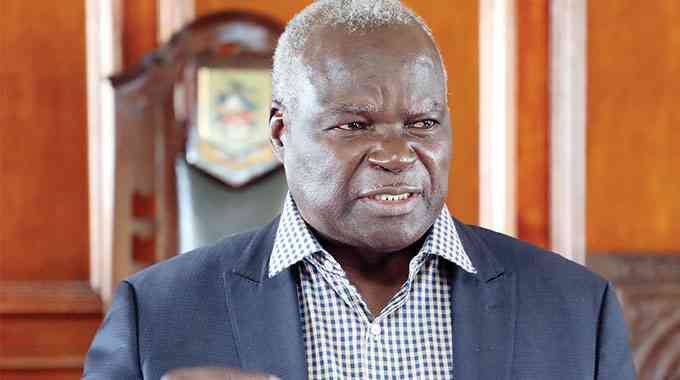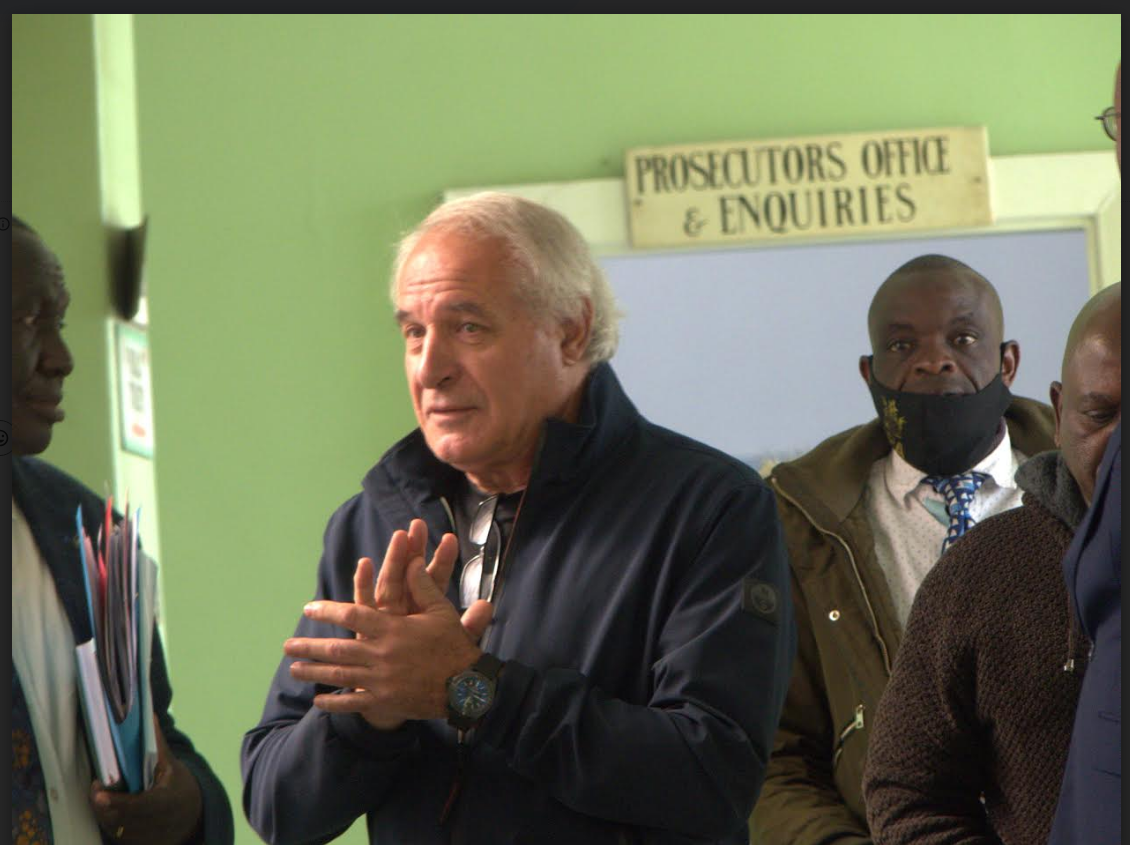
A case where Local Government minister July Moyo is accused of usurping the Prosecutor-General's powers by signing a settlement deed giving away state land to a private land developer is set for trial.
On May 28, 2019, Moyo, Harare City Council and Augur entered into an agreement and signed a deed of settlement that gave immunity from prosecution to Augur Investment, a company owned by businessman Ken Sharpe in a bid to end the war over land between the local authority and Sharpe’s company.
The deed of settlement allegedly also granted criminal immunity to Sharpes’s aide Tatiana Aleshina and their associates, Michael Van Blerk, and Alexander Sheremet, among others.
Fairclot, a company subcontracted to construct the Harare International Airport by Sharpe and claims it has not been paid has been challenging the deed of settlement.
After Sharpe failed to pay Fairclot, he gave away a piece of and, 654 Pomona as security and the title deed for the land is held in escrow by Coghlan, Welsh and Guest. However, the land was transferred to Doorex, a shelf company owned by Sharpe after paying ZWL$4.8 million to Fairclot soon after the gazetting of SI33 of 2019.
Fairclot is disputing the payment, demanding payment in US$ and the case is awaiting judgment at the High Court. Fairclot erected a billboard warning prospective home seekers of buying stands from 654 Pomona which is under dispute.
Sharpe, through West Properties, responded by reporting Allan and Grant Russel, the owners of Fairclot, and Paragon Printers for criminal nuisance. He also claimed US$20 million in claims against the trio.
But pre-trial minutes dated 23 November has now disclosed that the matter will proceed to trial and will seek to resolve several questions, among them, the validity of the deed of settlement. The pre-trial conference was before Justice David Mangota.
- Chamisa under fire over US$120K donation
- Mavhunga puts DeMbare into Chibuku quarterfinals
- Pension funds bet on Cabora Bassa oilfields
- Councils defy govt fire tender directive
Keep Reading
“Whether or not Doorex properties lawfully acquired title to stand 654 Pomona township in that (a) whether or not deed of settlement executed in May 2019 was legal (b) whether or not Justice Esther Muremba’s judgement is extant,” the minutes read in part.
“Whether or not Stand 654 Pomona Township could have been transferred without the authority of the President of the Republic of Zimbabwe and in the absence of settlement of what was due to the defendants, namely payment of US$ 4.800 000.”
The trial will also determine whether the billboard was defamatory and whether it caused any loss to West Properties.
“Whether it was wrongful for the defendants to put the billboard and whether it is legally competent for the plaintiff to claim delictual damages for loss of business. If so, did the plaintiff suffer any damages?”
The deed of settlement has also been challenged by property developer George Katsimberis, who has approached the High Court seeking to have the criminal immunity granted to Augur, a company registered in Ukraine, Estonia or Mauritius with extensive interests in Zimbabwe withdrawn, arguing that it violates provisions of the constitution.
He claims that the deed of settlement has shielded Augur from any prosecution and argues that the “clandestine” criminal immunity given to Augur was blocking the court from hearing his complaint against Moyo, Augur and Aleshina, a Ukrainian national with permanent residence in Zimbabwe as well as Pokugara Properties owned by Sharpe.
He wants the court to grant him private prosecution if Mutsonziwa is not willing to prosecute them.
After the deed of settlement was signed, the city of Harare transferred land, stand 654 Pomona, to Augur for the airport road construction project.
Norman Markham, a Harare North MP has also challenged the deed of settlement which Sharpe claims is valid because it has been registered with the court. He claims, Fairclot, Markham and Katsimberis have no locus standi to challenge the deed. This will be the first time the deed will be tested on merit after all the cases had been dismissed on a technicality.










